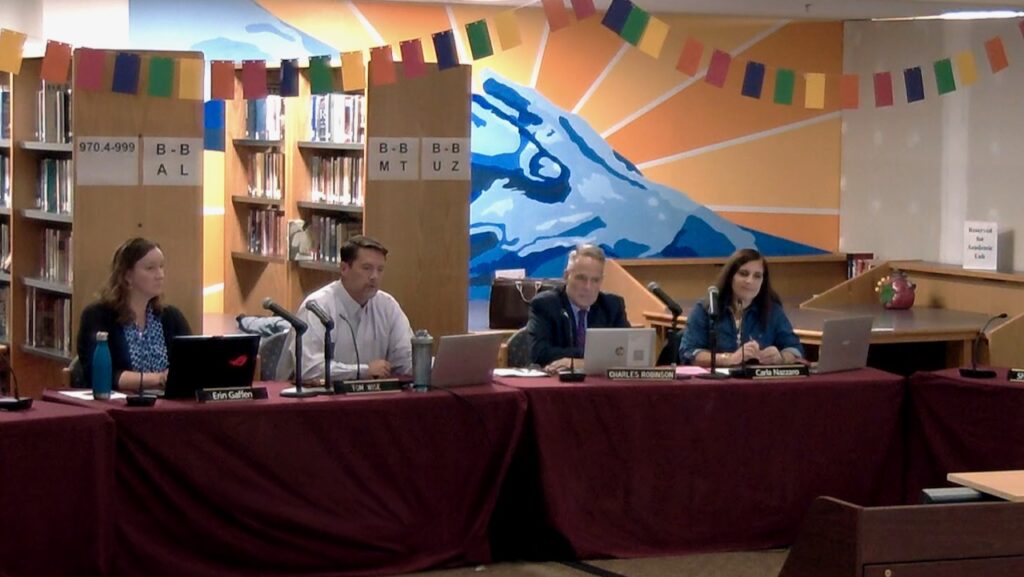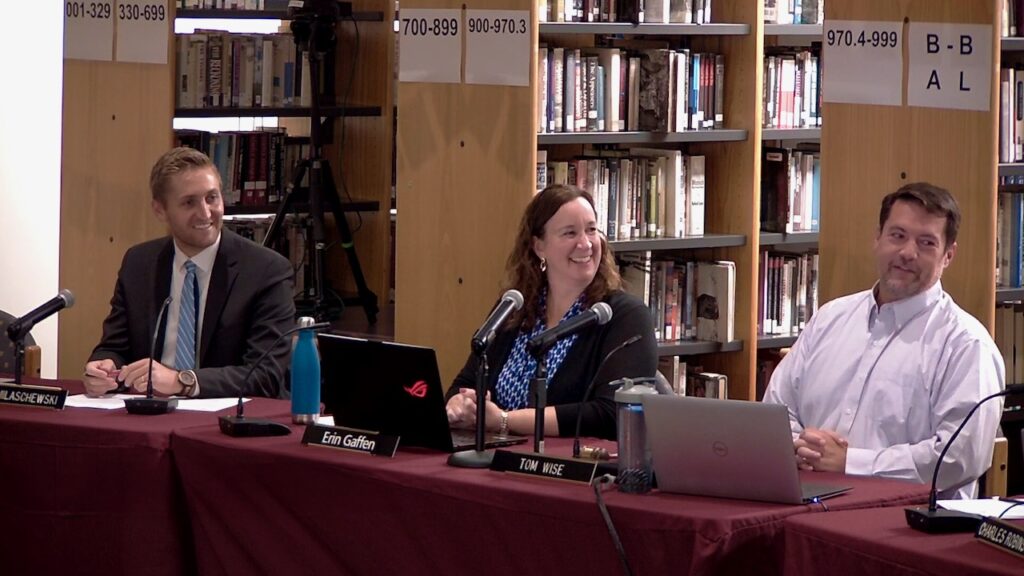Reading, MA — After several months of discussion, thought, and planning, the School Committee voted 4-0 to approve the 2023-2026 District Strategic Improvement Plan on Monday night. As first thoughts for the plan were presented on June 22, the vote came quickly, with little discussion in the meeting. School Committee chair Thomas Wise noted that “the work has already been put into this.”
In his memo to the School Committee, Superintendent Thomas Milaschewski shared that the plan was “crafted collaboratively by a variety of district stakeholders who developed the ideas for the plan and provided input and feedback on the plan.” Milaschewski also noted that the plan is a “living document,” which might be updated as the district moves forward.

The plan is built around four strategic objectives, the first being a supportive, equitable, and safe learning environment. Work in this area will include building a shared sense of belonging, developing valid data collection systems, building coherence in the METCO program, and continued growth in the program for multi-language learners.
The second objective is coherent instructional systems. The district will seek to ensure a high-quality curriculum, ensure a variety of college and career pathways for secondary math students, utilize and refine a comprehensive assessment framework, and design a high-quality system of professional development for teachers and staff.
The third objective is in the area of school operations. Key procedures and processes will be reviewed. All resources will be optimized and leveraged. Systems for human resources, recruitment, and attendance will be refined, and there will be collaboration with the Massachusetts School Building Authority to enable the community to build a new Killam Elementary School.
The fourth and final strategic objective is family and community engagement. The plan seeks to strengthen and improve family and school partnerships and engagement with all learners’ families and create a children’s cabinet to bring together key leaders who serve children and youth in Reading.
The complete plan can be accessed on the school district website.
The School Committee also took a few minutes to formally meet four new leaders in the district. These include new RISE director Kerry Wilcox, new Killam Principal Lindsey Fallon, interim Reading Memorial High School (RMHS) Principal Jessica Callanan, and new Director of Finance and Operations, Derek Pinto.
All four leaders shared that they have been spending time getting to know the community and that they have been welcomed. Wilcox pointed out, “It is so clear that the things that I value . . . are similar to the values at RISE.” Fulton highlighted a beginning of the school year assembly on values as well as lunch meetings she has been having with students.
Callanan shared her observation that Reading is an “amazing community” and that she has found the staff at RMHS to be “professional and caring.” She also sees her role “not just as a placeholder” but to help “pave the way for a new leader” at RMHS.
Pinto has been building relationships and gathering data regarding the district, including riding the school buses himself to assess the routes and how they function. “[The administrative team] really is a winning team,” Pinto declared.

The committee spent considerable time determining how many focus indicator goals it would use in its evaluation of the superintendent. Wise pointed out that former superintendent John Doherty had been evaluated on twenty-one focus indicators, given that he was a ten-year superintendent with a long history in the district. Wise also noted that recent Massachusetts Association of School Committees guidance suggests the use of eight or fewer focus indicator goals.
There was extended discussion regarding the use of progress on the Killam Elementary School as part of the focus indicators. It was agreed that the twenty-one focus indicator goals would be used to evaluate Milaschewski, as Wise pointed out that by the time the review is done in 2025, Milaschewski would be four years into his tenure as superintendent.
The committee’s final business was to slightly modify the superintendent’s goals to reduce the metric for reaching Department of Elementary and Secondary Education targets from 100% to 80%. Milaschewski stated that 100% was seen as an unreasonable target and that 80% was still a “reasonable, yet lofty goal.” Another minor adjustment was to add the new assistant principals to the professional development plan. The School Committee approved the changes by a vote of 4-0.
The School Committee adjourned at 8:30 pm.
